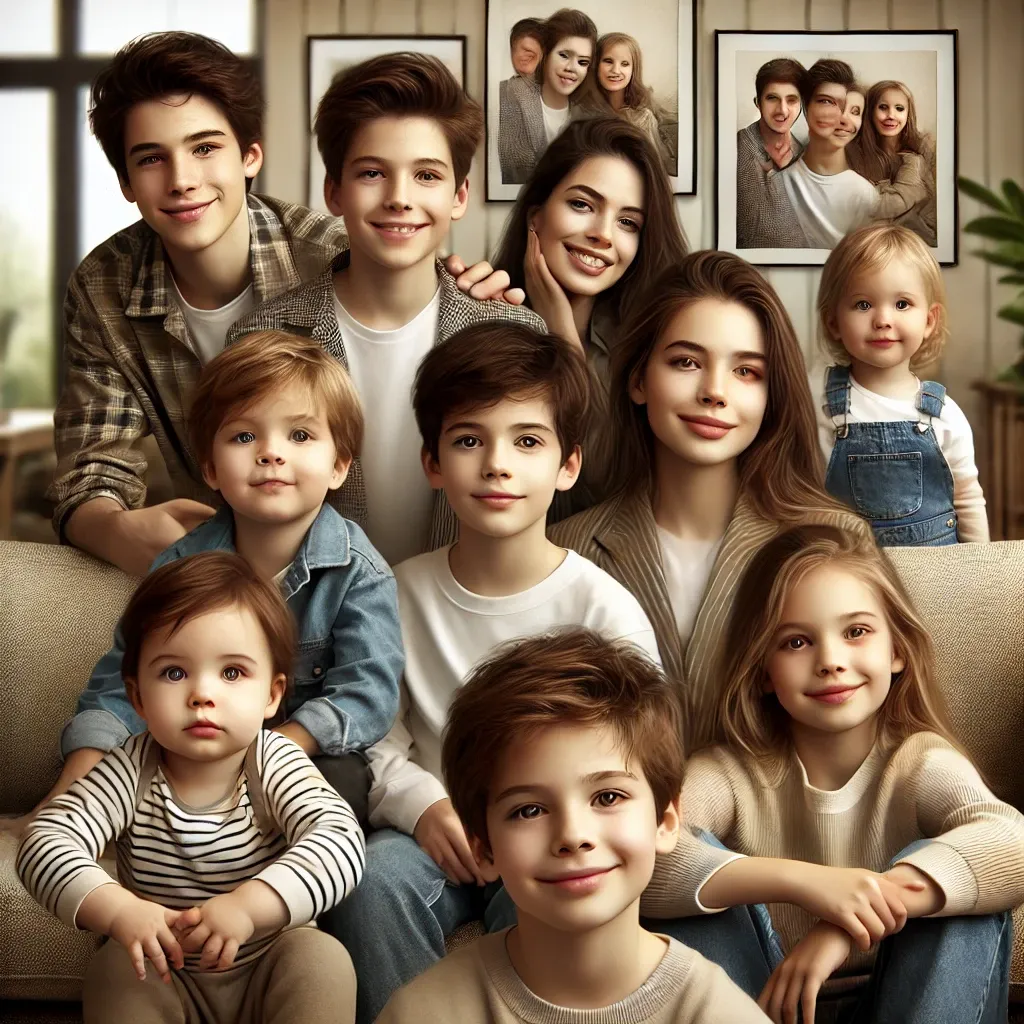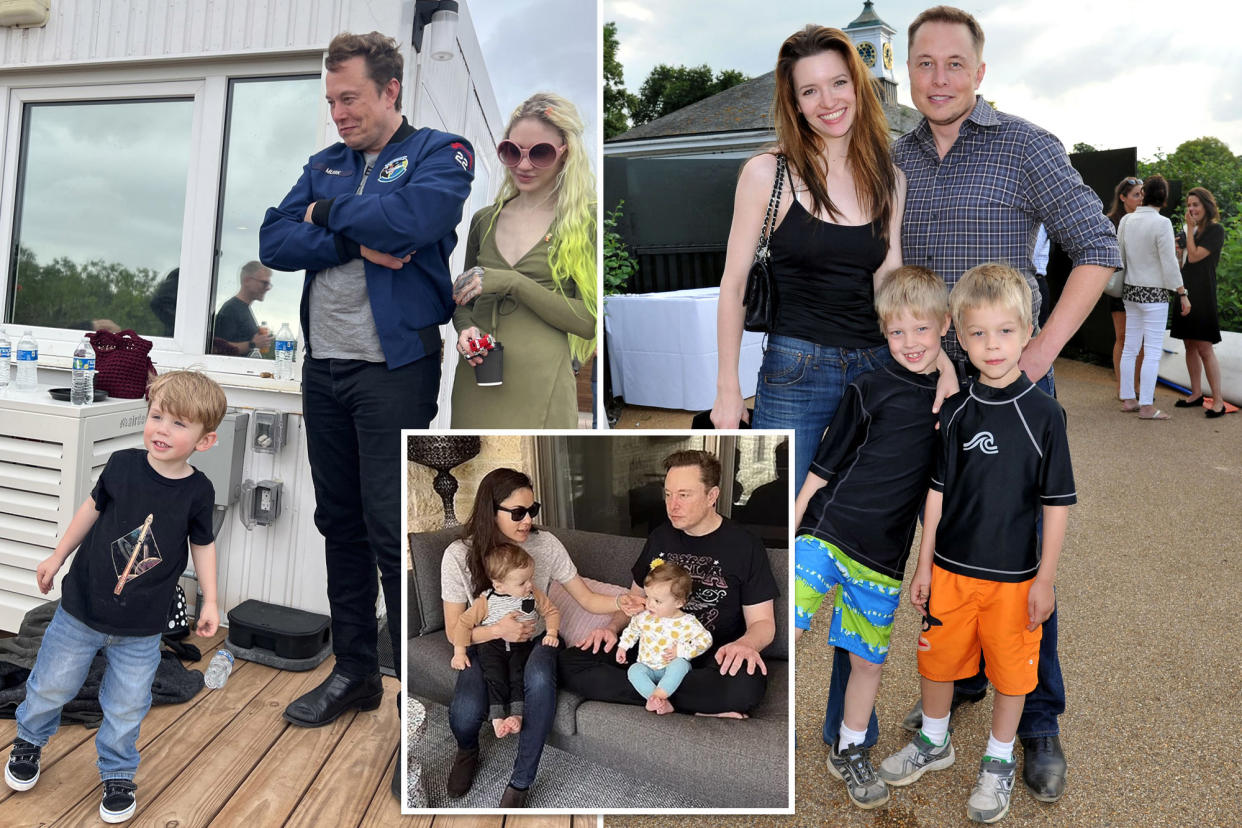There is, you know, a good bit of public interest surrounding prominent figures, and Elon Musk is certainly one of those individuals who captures a lot of attention. People often find themselves curious about various aspects of his personal life, with questions about his family often surfacing. It's a natural human tendency, perhaps, to wonder about the lives of those who make big headlines.
This curiosity often extends to his family situation, especially when discussions turn to the number of children he has. The word "many" sometimes enters these conversations, hinting at a family that might be considered quite large by today's usual standards. It's a word that suggests a significant quantity, yet it remains, in a way, somewhat vague.
So, when people ask "how many children Elon Musk have," they are often trying to get a sense of this number, to understand if it fits their own idea of what "many" means. We can, you know, look at what the word "many" truly means and how it helps us talk about things we can count, like people in a family.
- %E3%83%8F%E3%83%BC%E3%83%AD%E3%82%A6%E3%82%AA%E3%83%AA%E3%83%93%E3%82%A2%E3%82%AB%E3%83%A9%E3%82%A4%E3%82%AA%E3%83%94%E3%83%BC%E3%82%B8%E3%82%A7%E3%83%BC%E3%83%B3
- Amatus Sami Karim
- Cast Of Blade 2025
- Ochocinco
- Bill Arriaga
Table of Contents
- Elon Musk - A Figure of Public Interest
- The Public's Curiosity About How Many Children Elon Musk Have
- What Does "Many" Really Mean When We Talk About How Many Children Elon Musk Have?
- How Is "Many" Used with Countable Things, Like When We Ask How Many Children Elon Musk Have?
- Does "Many" Always Mean the Same Thing to Everyone When We Consider How Many Children Elon Musk Have?
- What Are Some Ways People Talk About "Many" in Public Discussions About How Many Children Elon Musk Have?
- Why Does the Question "How Many Children Elon Musk Have" Keep Coming Up?
- Exploring the Idea of "Many" in the Context of Public Figures' Families
Elon Musk - A Figure of Public Interest
Elon Musk, you know, has become a widely recognized person across the globe. He is known for his work with several well-known companies that often push the limits of what is possible. His public image is that of someone always looking to the future, which, in a way, makes people curious about all parts of his life.
His ventures often attract significant discussion, whether it's about space travel or electric cars. This constant presence in the news naturally brings a lot of attention to his personal affairs too. People are, after all, interested in the people behind the big ideas.
Here's a quick look at some general details about him:
- Pictures Of Mcdonalds Characters
- Karen Smith
- %ED%97%A8%ED%82%A4 %EA%B7%B8%EB%A6%AC%EC%96%B4 %ED%95%B4%EB%A8%BC%EB%93%9C
- Jelena Djokovic Nationality
- Valeri Bure
| Detail | Information |
|---|---|
| Full Name | Elon Reeve Musk |
| Birth Year | 1971 |
| Place of Birth | Pretoria, South Africa |
| Known For | Innovation in various industries |
| Current Residence | United States |
The Public's Curiosity About How Many Children Elon Musk Have
It's pretty common, you know, for people to feel a sense of curiosity about the personal lives of well-known individuals. When someone's work is so public and impactful, a natural desire to know more about them as a person tends to arise. This often includes their family life, which for many, is a very private matter.
The question of "how many children Elon Musk have" often comes up in conversations and online searches. This is, in some respects, part of a broader interest in his overall lifestyle and choices. People might compare his family situation to their own or to what they see as typical, creating a point of discussion.
This interest isn't just about simple facts; it can also reflect societal ideas about family size, public figures, and personal responsibilities. The very idea of having what some might call "many" children can spark a lot of different thoughts and feelings in people, which is, you know, pretty interesting to observe.
What Does "Many" Really Mean When We Talk About How Many Children Elon Musk Have?
The word "many" is something we use quite often, but its exact meaning can, in a way, be a little fluid. When we say "many," we are talking about a quantity that is large, but we don't usually give an exact count. It's more of an idea of a big group, rather than a precise figure.
Interestingly, the word "many" often shows up in questions or sentences that are negative. For example, you might ask, "Do you have many things to do today?" or say, "Not many films are made in Finland." This kind of usage suggests a certain inquiry or a statement about a smaller than expected amount, or perhaps a large, indefinite amount, which is pretty common.
When you use "many," you are telling people that you are referring to a good number of individuals or items. It helps to give a general sense of quantity without needing to be super specific. This is, you know, very useful in everyday talk where exact numbers aren't always needed or even known.
The word "many" comes before nouns that you can count. For instance, you say "many books" or "many people." You can also compare it, saying "more" for a larger amount and "most" for the largest amount. This shows that "many" fits into a system for talking about quantities that can be counted, which is, you know, fairly clear.
It means, basically, a big, unclear count of things. It's a general term, not a precise measurement. So, if you're talking about, say, a number of items, and that number is considerable but not pinpointed, "many" fits the description pretty well.
Sometimes, instead of "many," people might use phrases like "a couple of," "a few," "a handful of," or "several." These terms also point to an indefinite number, but they usually suggest a smaller quantity than "many" does. It's, you know, a spectrum of amounts.
So, "many" amounts to, or is made up of, a big, unclear number. It describes a collection that is substantial in size, but you don't have to list each part. This makes it a really handy word for general descriptions, which is, you know, a very common way we speak.
The idea of "the majority of the people" also ties into the concept of "many." When you talk about the majority, you are referring to a large portion of a group, perhaps even more than half. This means a significant number, much like what "many" suggests, just with a bit more emphasis on being the greater part, that is, pretty obvious.
There's even an old saying, "The many fail, the one succeeds," from Tennyson. This shows how "many" can be used in a broader, more philosophical sense, representing a large group that might not achieve something, compared to a single person who does. It's a way to talk about groups versus individuals, which is, you know, a very old idea.
Another example of its use is "A good many of the workers had the flu." Here, "a good many" emphasizes that the number was not just "many" but a considerable amount, perhaps even more than expected. This shows how adding a word like "good" can strengthen the idea of a large quantity, which, you know, is interesting.
Words like "innumerable," "manifold," and "numerous" are similar to "many." They all suggest that there are a lot of units present or following one after another. They give the sense of a large quantity without necessarily providing a precise count, which is, you know, a common linguistic feature.
Indeed, "many" is a very popular and often used word to convey this idea of a large number. It's simple, direct, and widely understood, making it a go-to choice for discussions about quantity. People just seem to like it, and that's, you know, pretty clear.
How Is "Many" Used with Countable Things, Like When We Ask How Many Children Elon Musk Have?
The word "many" is used with things that we can actually count. Think about it: you can count children, just like you can count apples or books. So, when someone asks "how many children Elon Musk have," they are asking about something that can be counted, which, you know, makes sense for the word "many."
In contrast, we use "much" for things that we cannot count easily, like water or happiness. You wouldn't say "many water"; you'd say "much water." This distinction is pretty basic in how we talk about quantities, and it helps to keep our language clear, which, you know, is fairly important.
A common way to use "many" in a question is, "Do you have many things to do today?" This question asks about a large, but not exact, number of tasks. It shows how "many" works well when you're inquiring about a quantity of items that can be individually separated and counted, that is, pretty straightforward.
So, "many" means forming or making up a large number. It describes a group or collection that is sizable. This definition holds true whether you are talking about people, objects, or even abstract concepts that can be quantified, which, you know, is quite versatile.
You can find many examples of "many" used in sentences if you look around. These examples show how flexible and common the word is in everyday language. It's a word that truly helps us talk about the world around us in a general way, which is, you know, pretty cool.
"Many" refers to a big number of items that one can count. It is typically used with nouns that are plural and can be counted, such as properties, days, and students. Children, as it happens, are definitely countable nouns, so the question of "how many children Elon Musk have" naturally uses the word "many," which, you know, fits perfectly.
Does "Many" Always Mean the Same Thing to Everyone When We Consider How Many Children Elon Musk Have?
The perception of what constitutes "many" can vary quite a bit from person to person. What one person considers a large number of children, another might see as just a few, or perhaps not that many at all. This difference often comes from individual experiences and beliefs about family size, which is, you know, pretty common.
Cultural ideas also play a big part in this. In some places, having a lot of children might be the usual thing, while in others, smaller families are more typical. So, when people think about "how many children Elon Musk have," their own background might color their view of whether that number is "many" or not, that is, pretty much how it works.
Personal experiences, like growing up in a big family or a small one, can really shape someone's definition of "many." If you come from a family with lots of siblings, then a certain number might not seem like "many" to you, whereas for someone from a very small family, that same number could seem like a huge amount. It's, you know, all about perspective.
Related Resources:



Detail Author:
- Name : Mrs. Haylie Bauch
- Username : aurelio.bogisich
- Email : gibson.heloise@shanahan.biz
- Birthdate : 1974-04-17
- Address : 44644 Talon Cape Suite 787 West Darius, GA 08158
- Phone : +1-484-943-2860
- Company : Jacobs-Konopelski
- Job : Clinical Laboratory Technician
- Bio : Laudantium vel esse sequi ab aut. Necessitatibus non earum saepe sed dolor dolor et ea. Maxime suscipit eveniet et voluptas.
Socials
instagram:
- url : https://instagram.com/matteo_ledner
- username : matteo_ledner
- bio : Assumenda recusandae maiores excepturi quaerat. Similique tempore non reprehenderit et est.
- followers : 6574
- following : 2274
linkedin:
- url : https://linkedin.com/in/matteo_ledner
- username : matteo_ledner
- bio : Esse debitis omnis a consectetur aut.
- followers : 6075
- following : 61